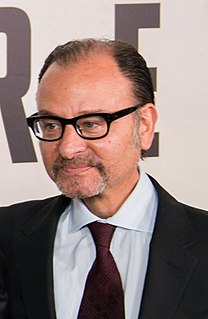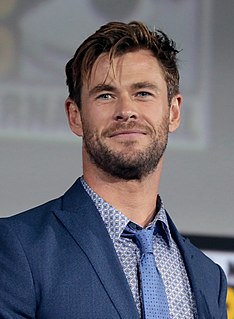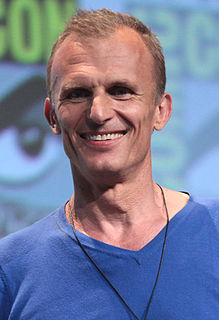A Quote by Fisher Stevens
Unfortunately, the public might not know that we get a script usually two days before shooting. So sometimes I'm shooting an episode and don't even know how it's going to end because I haven't read that yet.
Related Quotes
In a play, you know where you start and end and all the stops you have to do, but in television, you can't construct this carefully planned out arc for your character. You often get a script and you're shooting it two days later, and you don't know what's going to happen next. It's one of the harder things that I've done.
I don't think fast enough on my feet in terms of the writing to change the script too much when I'm shooting it. I like to have it set and done and know that I feel good about it and I might add a few lines here and there while we're shooting, if I think of a new joke, I might toss it in, but for the most part, I try to stick to the written script and have all the latitude exist within that.
I love my situation as a spectator. The actors are only a little bit ahead of the audience. The audience discovers the episode when it's screened, but we actors only discover the episode when we get the script, two weeks ahead of shooting. Until then, we know nothing of the evolution of our characters.
I rarely feel the desire to reread a scene the day before the shooting. Sometimes I arrive at the place where the work is to be done and I do not even know what I am going to shoot. This is the system I prefer: to arrive at the moment when shooting is about to begin, absolutely unprepared, virgin. I often ask to be left alone on the spot for fifteen minutes or half an hour and I let my thoughts wander freely.
I was talking to Shonda Rhimes the other day and I said, "I. Do. Not. Know. How. You. Do. This." While we're writing episode 10, episode 6 is shooting, episode 3 is in the edit, and episode 2 is in its color session...You've got seven episodes in different parts! It's a wild, wild, wild ride, which I thoroughly enjoyed. It was badass and amazing.
I didn't even think about it when I read the script and then shooting their movie and someone was like "boy, press is going to be fun". And I didn't really know what they were talking about because to me it's just a film shows it as an extremely viable option which is obviously the most important thing for young individuals.
Die Hard With A Vengeance shooting was a great time, because we had an interesting script. The first script was called Simon Says, and something was going on, because some days we'd get to work, but we wouldn't actually have dialogue. We would go to Bruce's Willis trailer, and they'd say, "Okay, you have to go from 168th Street to 97th Street today. We're going to do it in the cab, and Sam, you say this. Bruce, what do you want to say?" And that's how Bruce's "hey, Zeus!" thing came up.
There were a couple of times, leading up to shooting [Ordinary World], where I was like, "Oh, my god, what did I get myself into? Hopefully, I don't ruin this guy's precious script." And then, after a couple of days of shooting, I started getting in the groove of it and it was really fun. I love being a rookie at stuff. It makes it feel vital. I love doing things I've never done before, and I love making stuff.



































